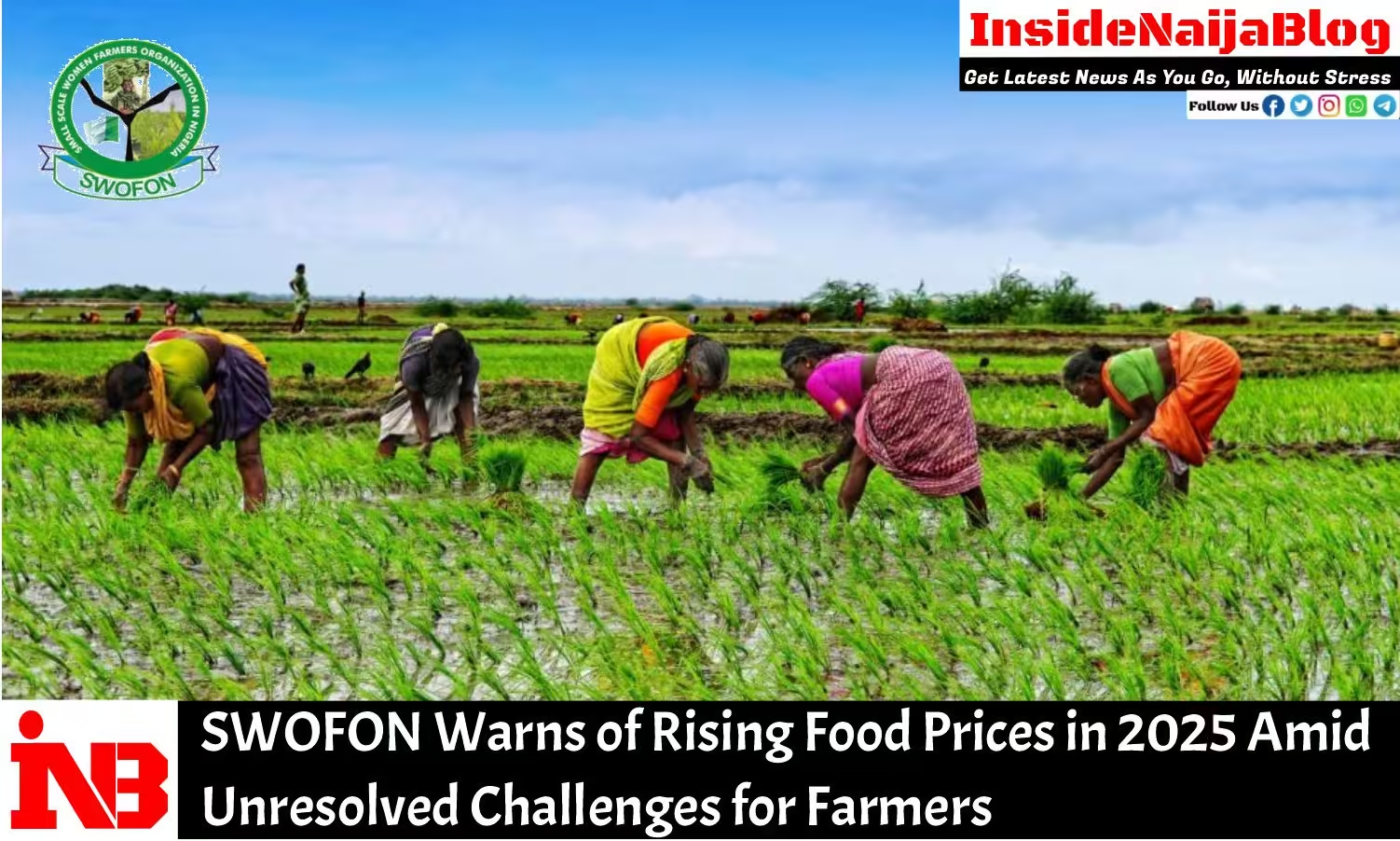The Small Scale Women Farmers Organisation in Nigeria (SWOFON) has raised concerns that food prices may rise significantly in 2025 if the current challenges faced by farmers are not promptly addressed. This caution was voiced on Wednesday during the SWOFON FCT State Level Interactive Forum held in Abuja, an event organized to mark the International Day of Rural Women and World Food Day.
World Food Day, celebrated globally on October 16, commemorates the founding of the United Nations Food and Agricultural Organisation (FAO) in 1945. The theme for the 2024 celebration, “Right to Food for a Better Life and a Better Future,” underscores the importance of food security and nutrition in building sustainable societies. This year’s forum, hosted by SWOFON in collaboration with ActionAid Nigeria under the Scaling Up Public Investment in Agriculture (SUPIA) project, highlighted the struggles faced by small-scale women farmers across the country.
Critical Challenges Facing Farmers
During the forum, farmers expressed their concerns over a variety of challenges, including insecurity, conflicts between farmers and herders, lack of access to credit facilities, limited land access, poor irrigation systems, post-harvest losses, and insufficient mechanization. These issues, according to the farmers, are making it difficult to boost agricultural productivity, which in turn threatens the nation’s food security.
Mrs. Comfort Sunday, the Coordinator of SWOFON’s FCT Chapter, noted that the celebration of World Food Day should represent a time when food is abundant and accessible. Unfortunately, she lamented, this is not the case in Nigeria, where a large portion of the population is struggling to afford even a single meal per day.
Lack of Support for Smallholder Women Farmers
Mrs. Sunday stressed that smallholder women farmers play a crucial role in ensuring food and nutrition security in Nigeria, but their needs are often overlooked by policymakers. Among the many obstacles they face are land grabbing, ownership disputes, theft, and a lack of access to extension services.
“The major problem we are having is the issue of land,” Sunday emphasized. She urged the government to provide secure access to land for women farmers and ensure their safety, as well as the safety of their farms. Without addressing these issues, she warned, the country’s efforts to achieve food security will be significantly undermined.
Call for Action on Post-Harvest Losses and Food Security
Mrs. Mercy Nnnana, Secretary of SWOFON FCT, spoke out about the importance of translating the government’s recent declaration of a state of emergency on food security into concrete actions. While acknowledging that the declaration is a positive step, she pointed out that the country is currently facing significant food shortages and massive post-harvest losses.
“The only way to address food shortage is to stop huge post-harvest losses,” Nnnana stated. She called for increased investment in post-harvest management, including the provision of processing and storage facilities, training for farmers, and better access to markets. Nnnana also expressed frustration at the neglect of rural farmers, who contribute between 60% and 75% of Nigeria’s food production. She urged the government to bridge the knowledge gap affecting rural farmers, which would enable them to increase productivity and reduce food insecurity.
Review of Land Use Act and Empowerment of Women Farmers
Dr. Princess Tochukwu, a SWOFON member from Bwari Area Council, appealed for a review of the Land Use Act at the local government level. Such a review, she argued, would allow smallholder women farmers to have better access to land, thus enabling them to increase their agricultural output. Tochukwu also called on the government to match its commitments to food security with tangible actions, warning that too often, promises are made without follow-through.
Similarly, Mrs. Olabisi Ogedengbe, SWOFON Coordinator for Gwagwalada, urged the Federal Capital Territory (FCT) administration to declare a state of emergency on insecurity, which she said is preventing many women farmers from accessing their farms. Ogedengbe also called for the provision of improved farming equipment such as pumps, solar-powered boreholes, Nafak sprayers, and silos to assist women farmers in their efforts to boost food production.
A Call for Stronger Public and Private Sector Collaboration
Chika Orji, SUPIA Project Lead, highlighted the importance of the forum as a platform for smallholder farmers to engage directly with state actors and key stakeholders in the agricultural sector. She emphasized that the event provided an opportunity for farmers to voice their concerns and demand action from the government to address the barriers that continue to hinder their productivity.
Orji concluded by stressing the need for stronger collaboration between the public and private sectors to resolve the challenges facing farmers. She noted that only through concerted efforts can Nigeria ensure increased food production, food security, and the realization of the right to food for all citizens.
Conclusion
The forum organized by SWOFON and its partners has shed light on the pressing challenges faced by small-scale women farmers in Nigeria. Without urgent intervention, these challenges—ranging from insecurity to post-harvest losses—could lead to a significant rise in food prices and further exacerbate food insecurity in the country by 2025. The farmers’ call for government support, better land access, improved farming tools, and greater investment in agricultural infrastructure echoes a broader need for decisive action to safeguard Nigeria’s food future.




